Abstract
Essential oils were isolated from eight plant species which were relatively unpalatable to sheep and deer. The inhibitory potency of these essential oils upon sheep and deer rumen microorganisms was compared, in terms of total gas and volatile fatty acid (VFA) production, by use of an anaerobic manometric technique. Inhibitory effects of oils from the eight plant species may be placed in four groups: (i) essential oils from vinegar weed (Trichostema lanceoletum) and California bay (Umbellularia californica) inhibited rumen microbial activity most; (ii) lesser inhibition was exhibited by rosemary (Rosmarinus officinalis) and California mugwort (Artemisia douglasiana) oils, followed by (iii) blue-gum eucalyptus (Eucalyptus globulus) and sagebrush (Artemisia tridentata) oils; and (iv) oils from Douglas fir (Psuedotsuga menziesii) and Jerusalem oak (chenopodium botrys) resulted in the least inhibition, when 0.3 ml of each oil was used. A highly significant correlation coefficient (r = 0.98**) between total gas and VFA production indicated the validity of either method to measure the activity of rumen microorganisms. Our results are discussed in relation to the hypothesis that the selectivity and voluntary consumption of ruminants are related to the characteristic odor and antibacterial action of essential oils isolated from relatively unpalatable plant species.
Full text
PDF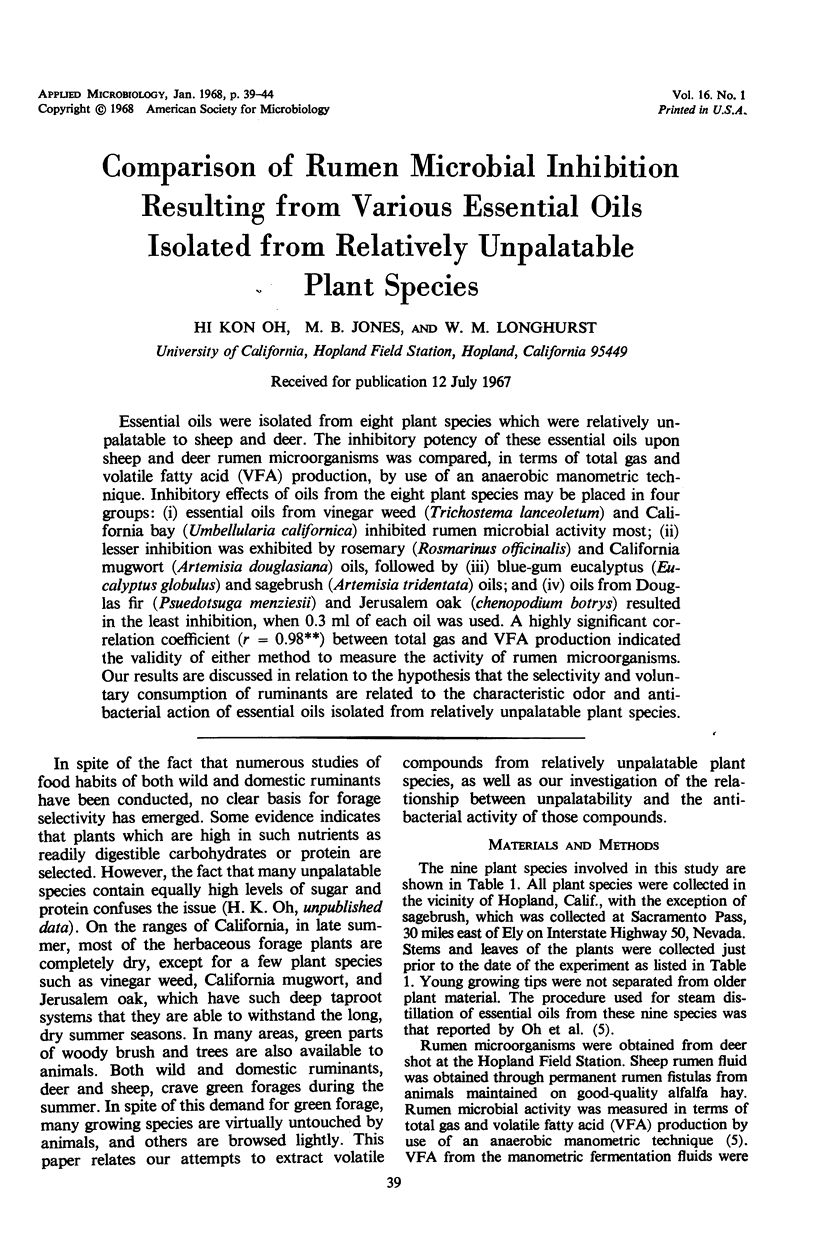
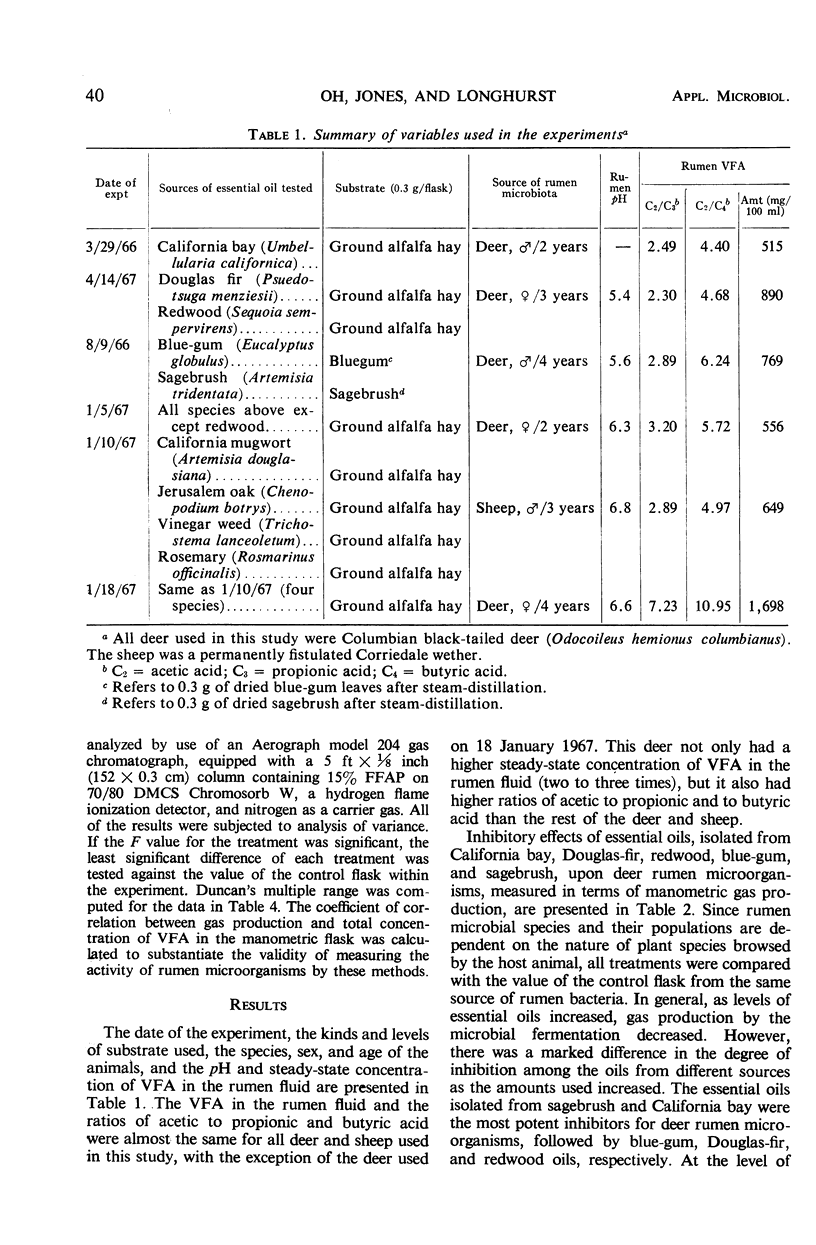
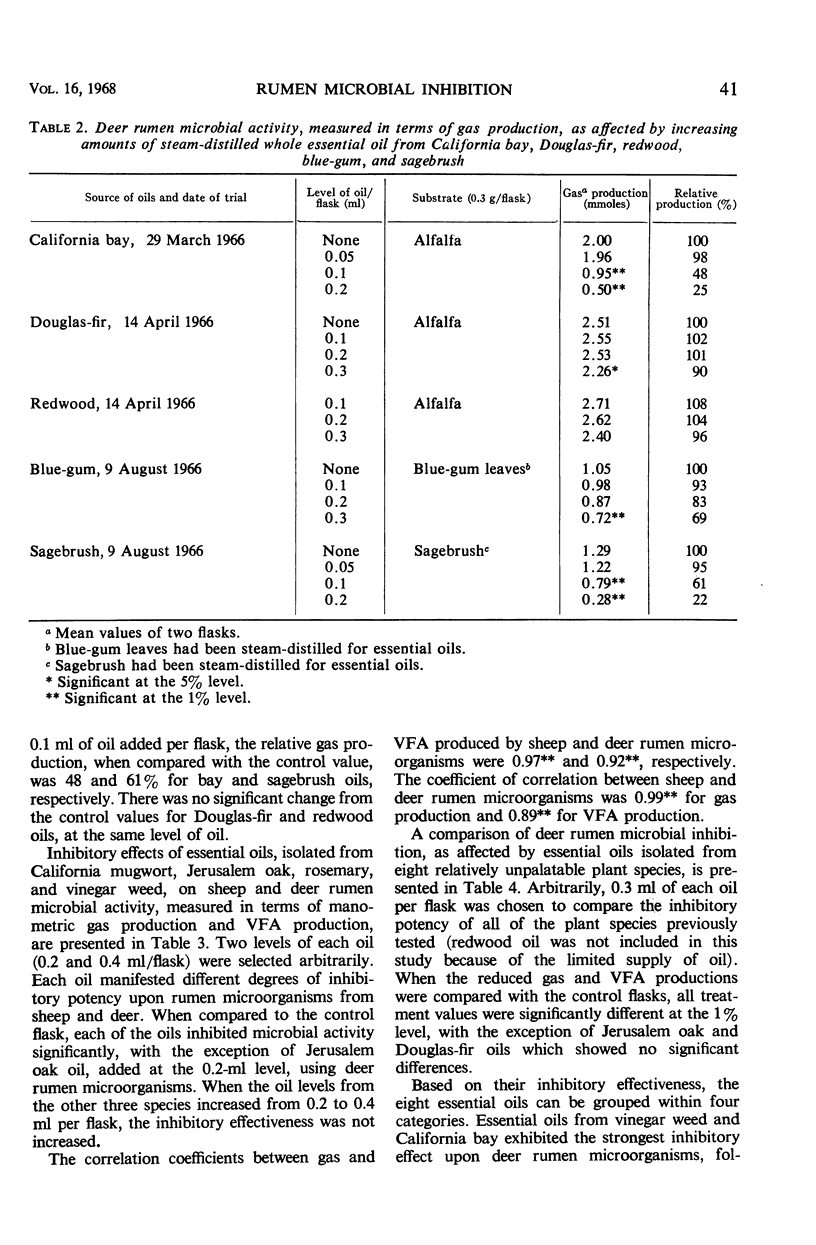
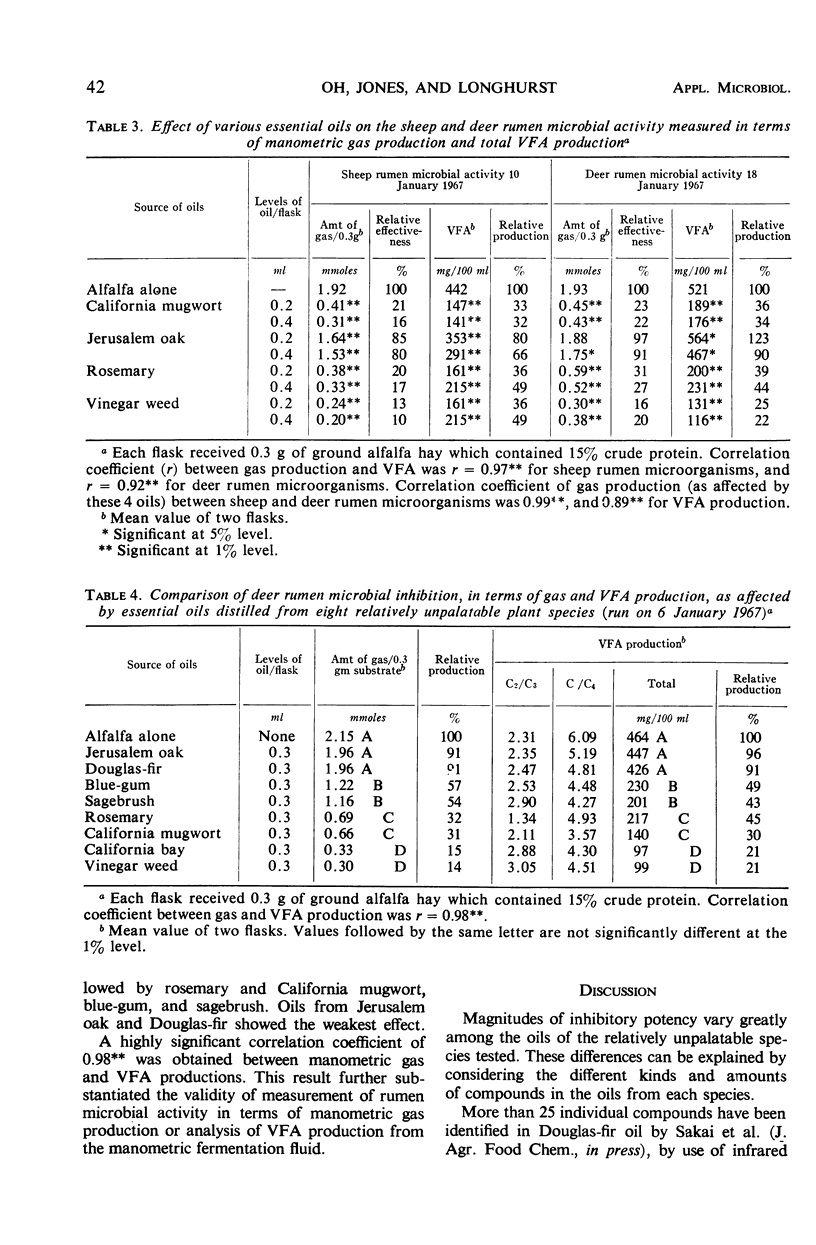
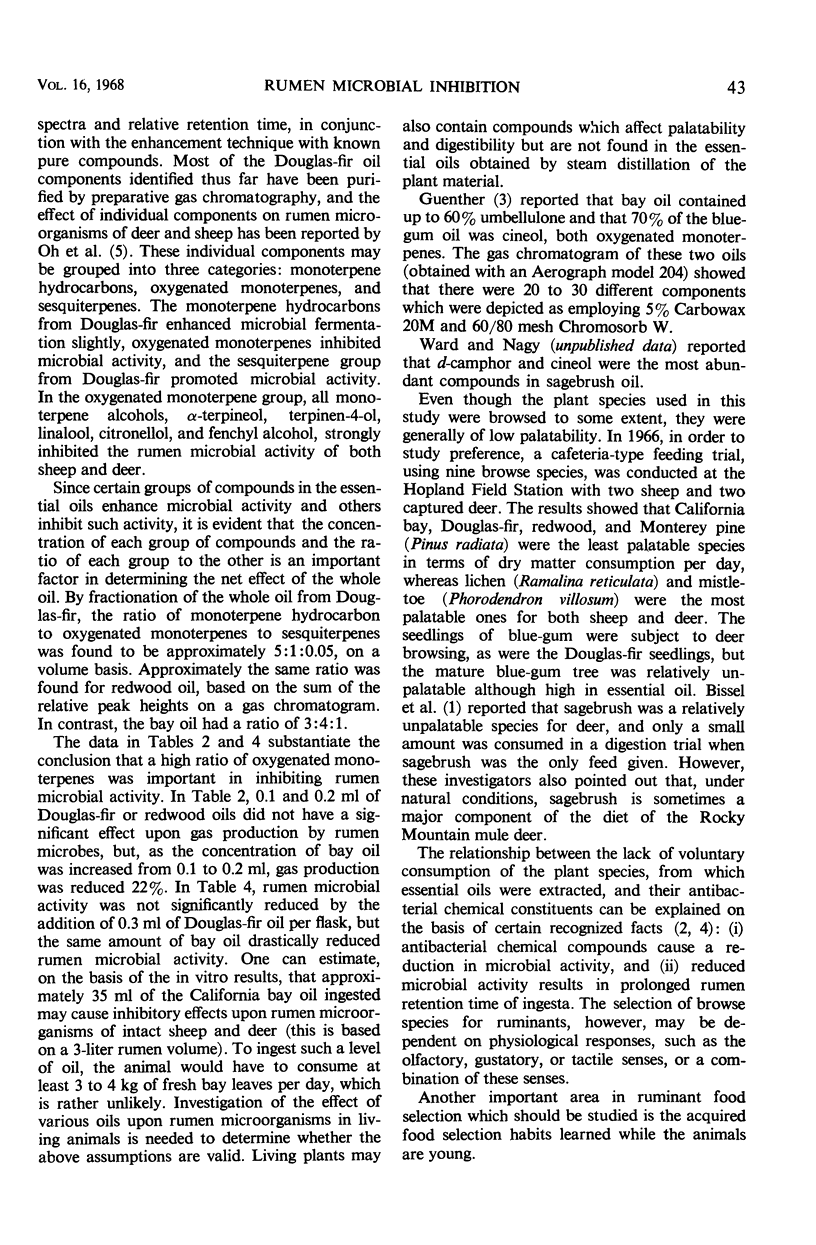
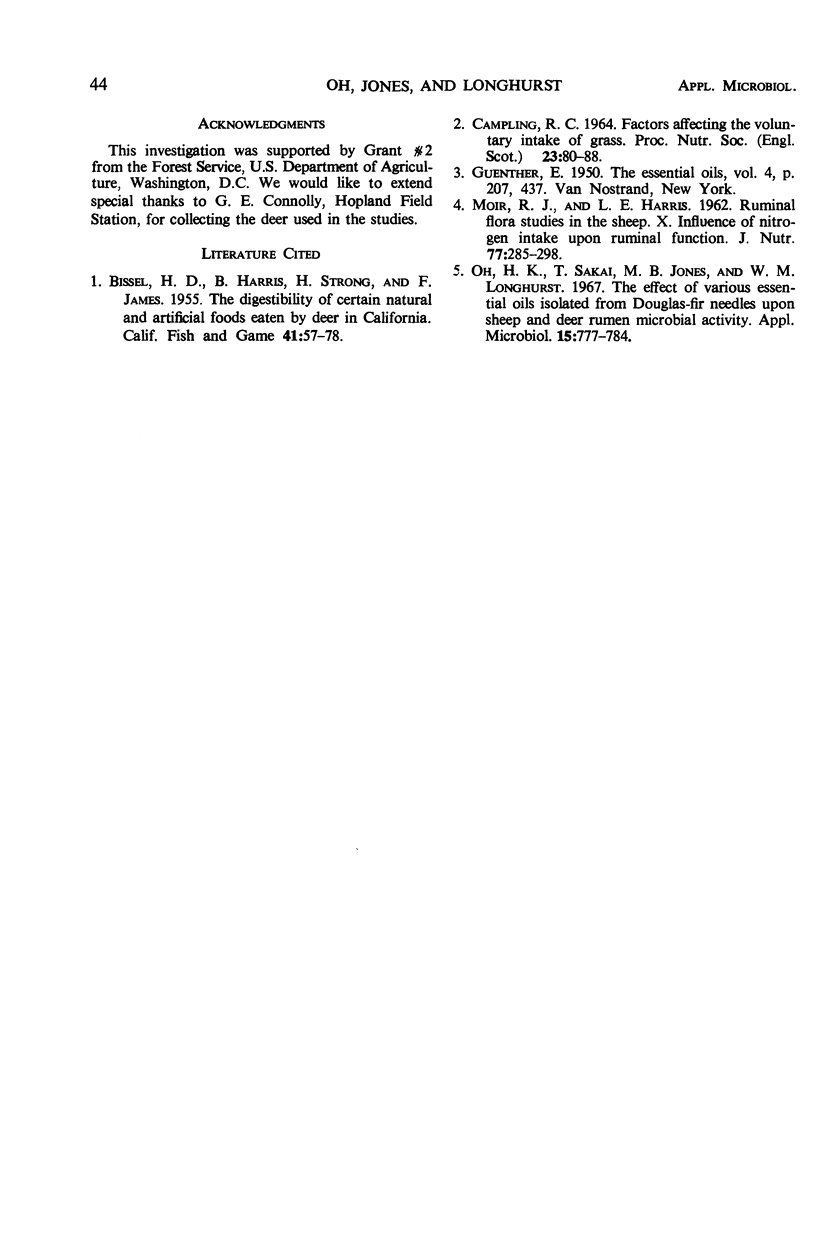
Selected References
These references are in PubMed. This may not be the complete list of references from this article.
- MOIR R. J., HARRIS L. E. Ruminal flora studies in the sheep. X. Influence of nitrogen intake upon ruminal function. J Nutr. 1962 Jul;77:285–298. doi: 10.1093/jn/77.3.285. [DOI] [PubMed] [Google Scholar]
- Oh H. K., Sakai T., Jones M. B., Longhurst W. M. Effect of various essential oils isolated from Douglas fir needles upon sheep and deer rumen microbial activity. Appl Microbiol. 1967 Jul;15(4):777–784. doi: 10.1128/am.15.4.777-784.1967. [DOI] [PMC free article] [PubMed] [Google Scholar]


